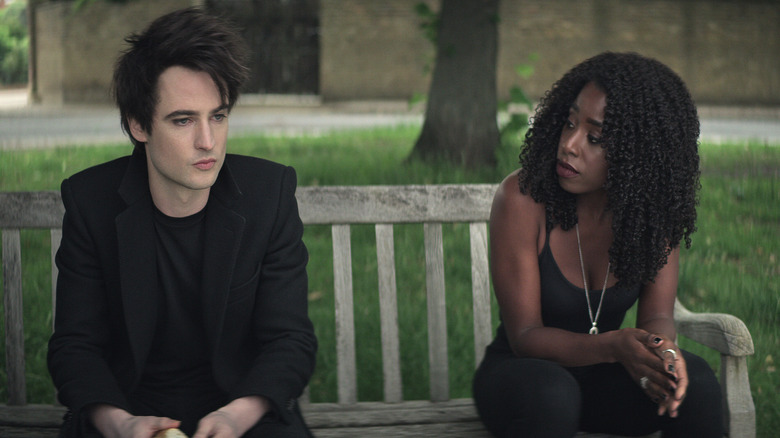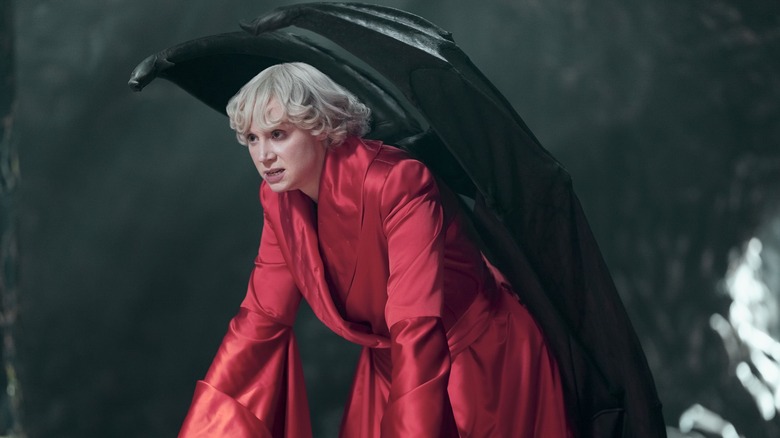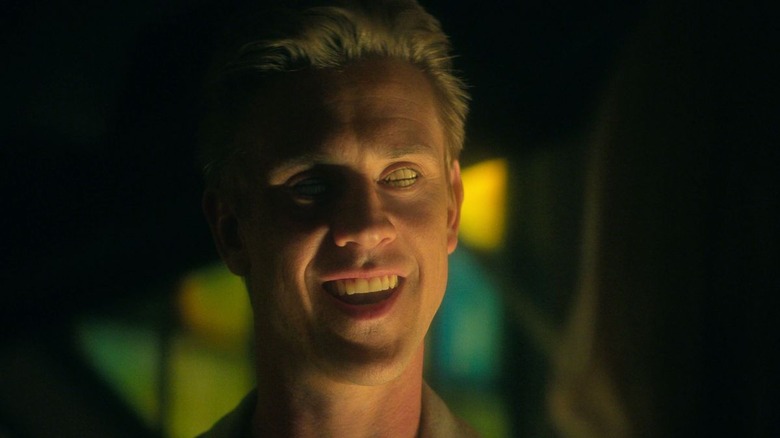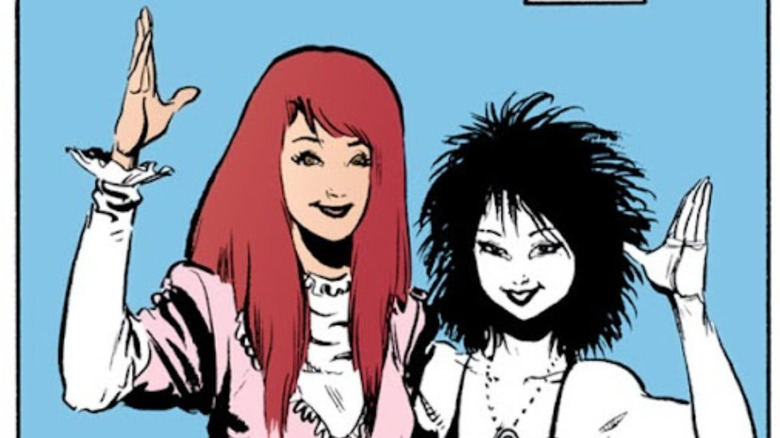Neil Gaiman Says The Sandman Casting Backlash Came From People Who Clearly Hadn't Read The Comics
If you follow Neil Gaiman on Twitter you know he's been having a lot of fun lately casually dunking on bigoted trolls. Over the past few months, he's shown very little patience to Twitter users popping up in his mentions complaining about the "wokeness" of "The Sandman" season 1. In a recent interview with Inverse, he's made it clear that he doesn't consider these people to be real fans of the source material at all.
For example, there's the controversy around the casting of Death. In the comics, she's mostly (but not always) portrayed as a white woman, but the Netflix show cast Black actress Kirby Howell-Baptiste as the character. "Death's casting wasn't controversial with Sandman fans," Gaiman explained, "because Sandman fans know that the Endless are supposed to look like what the people looking at them think they look like."
Sure enough, it's covered in both the comics and the show that Death and Dream, like the rest of their Endless siblings, change appearance depending on who they're speaking to. In the fourth episode when Dream is talking to his ex-girlfriend Nada, we see him from Nada's perspective and he's played by a Black actor. Since anyone who's read the books would understand this, it's hard for Gaiman to take the complaints about Howell-Baptiste's casting all that seriously. "The ability to give us the great personality was important," he tweeted back in May 2021. "The skin [color] of the actresses auditioning for the role was not."
The controversy around Lucifer
One of the other big casting complaints was that of Lucifer (Gwendoline Christie), a traditionally male character now presented to us as a woman. The fans bashing this decision aren't really Sandman fans either, according to Gaiman, because "they'd know that Lucifer looked kind of like an androgynous David Bowie and doesn't have any genitalia because they're an angel." Sure enough, Gaiman's version of Lucifer in the comics is a little like Desire, in that the character is drawn in a way that constantly straddles the line between male and female.
One of the funnier interactions Neil's had with a complainer on Twitter was when one of them put pictures of David Bowie next to Sandman's Lucifer, saying, "It is very obvious what Lucifer was supposed to be. You can like a change without acting like it wasn't changed." A few minutes later, Gaiman quote-tweeted him with the response: "Dude. This is going to hurt, but David Bowie's dead. We knew he wasn't available to play Lucifer any longer. That's why we cast Gwendoline Christie."
Another choice that received backlash was the casting of Jenna Coleman as Johanna Constantine, replacing the character of John Constantine in the first volume. The show was accused of needlessly changing the gender of the character for "woke" reasons, but as Gaiman explained: "Sandman fans know that she was a character introduced in Sandman No. 13 in 1989 and that she goes off and has several more adventures in the Sandman storyline. So it was much more economical for us to get her and to have Jenna play her."
The queer characters
Gaiman also has little patience for the people complaining about all the queer characters in the show: "Occasionally, you get people shouting at us for having made up all of these gay characters who weren't in the comics, and then we'd go 'Have you read the comics?' And they'd go 'No.' And we'd go, 'They were gay in the comics.'"
Sure enough, the majority of the queer characters in season 1 were also confirmed as queer in the comics, even if some of them (like Alex Burgess in the first issue) were confirmed as queer in more of a "blink-and-you-miss-it" manner. The 2022 series is definitely more explicitly queer than the original comics, but that's more of a reflection on how popular "The Sandman" comics are with queer readers. The series' LGBTQ+ representation was especially groundbreaking for the late '80s/early '90s, and as a result the comics' fandom is much more heavily queer than most mainstream comic series. It makes perfect sense for the show to want to lean into that.
And despite Gaiman being told over and over again that the show would get canceled for its apparent wokeness, that's not what happened. "We went Number 1 in the world for four weeks," Gaiman said. "And they went 'It's all bots! We hate you. You're woke.'"
If they didn't like season 1, wait 'til they see season 2
If you're mad at season 1 for being too woke, we'd kindly suggest that you maybe sit season 2 out altogether. Although details of the new season are still sparse, it's most likely that it will be adapting the volumes "Season of Mists" and "A Game of You," the latter of which is made up almost entirely of female characters, most of them blatantly, unapologetically queer.
The standout is Wanda, a transgender woman Gaiman received a lot of hate mail for at the time of writing. He ruffled a lot of conservative feathers for prominently featuring a trans character in a positive light and then ending the story with a clear-cut, defiant declaration that her identity as a woman is valid, no matter what any other character in the story might've said. Considering how Gaiman was able to weather the backlash around this story back in the '90s, he'll likely be just fine weathering the inevitable backlash here. As he told Inverse, it's hard to take the complainers on Twitter all that seriously:
"It's a weird silliness. These complainers don't like gay people, they don't like Black people, and they don't like women. And if you look at their profiles, they don't like vaccines, they don't like Democrats, and they're not big on voting."
Season 2 of "The Sandman" will likely come out sometime in 2024. As we wait, we can take comfort in the knowledge that however the new season turns out, the writers won't be wasting any time trying to appease the trolls.



